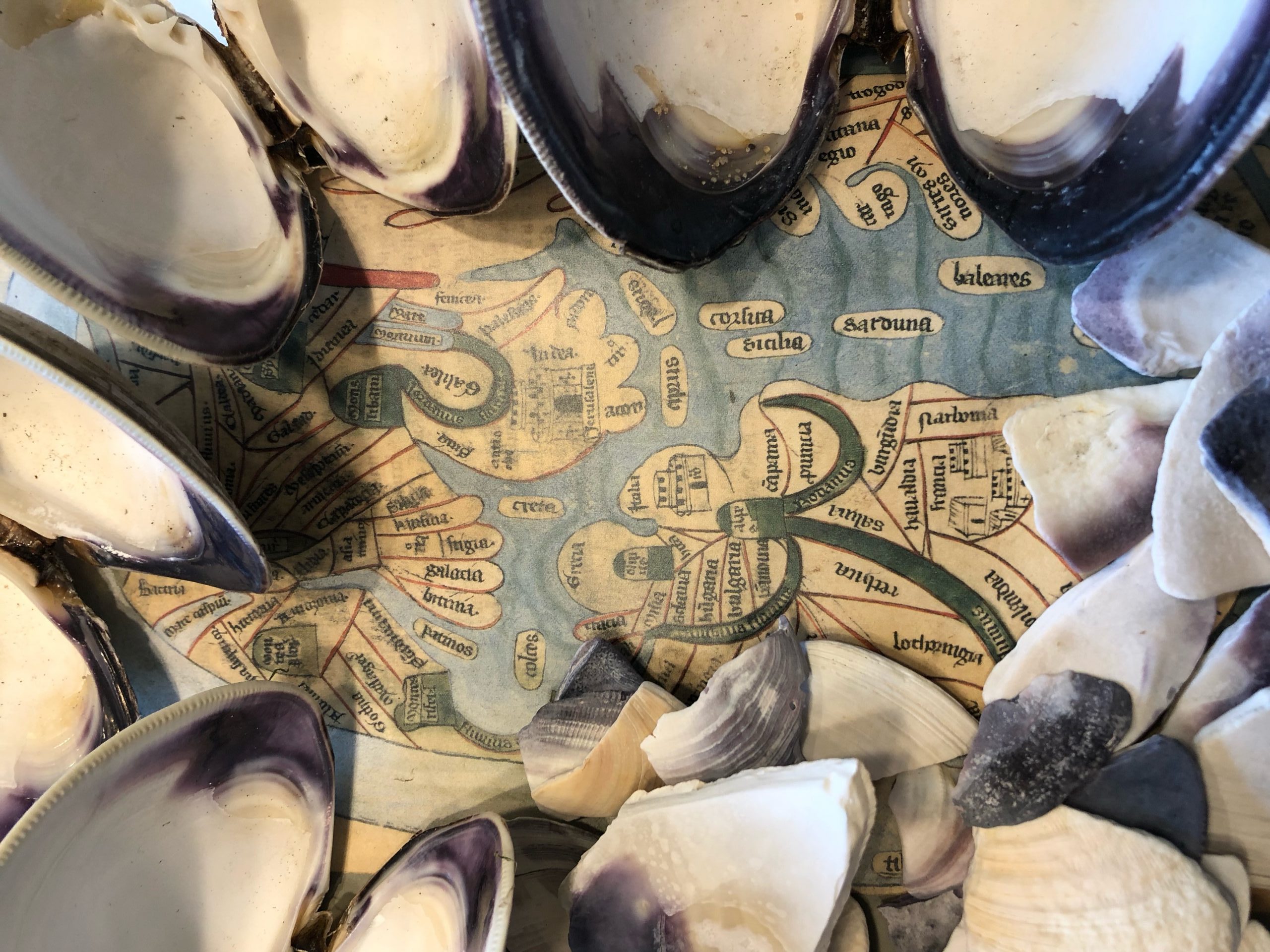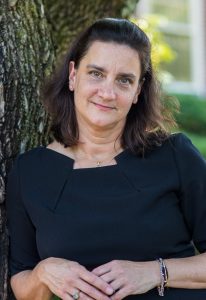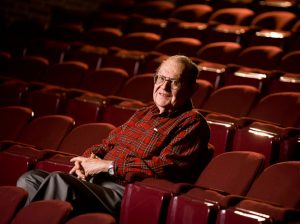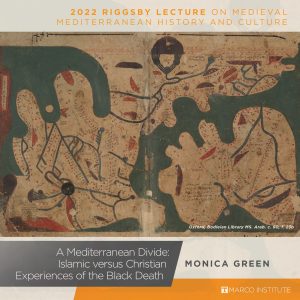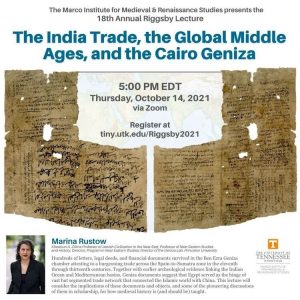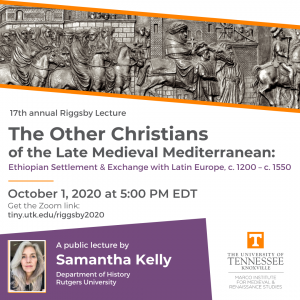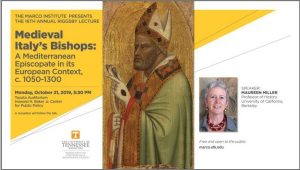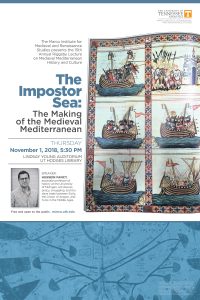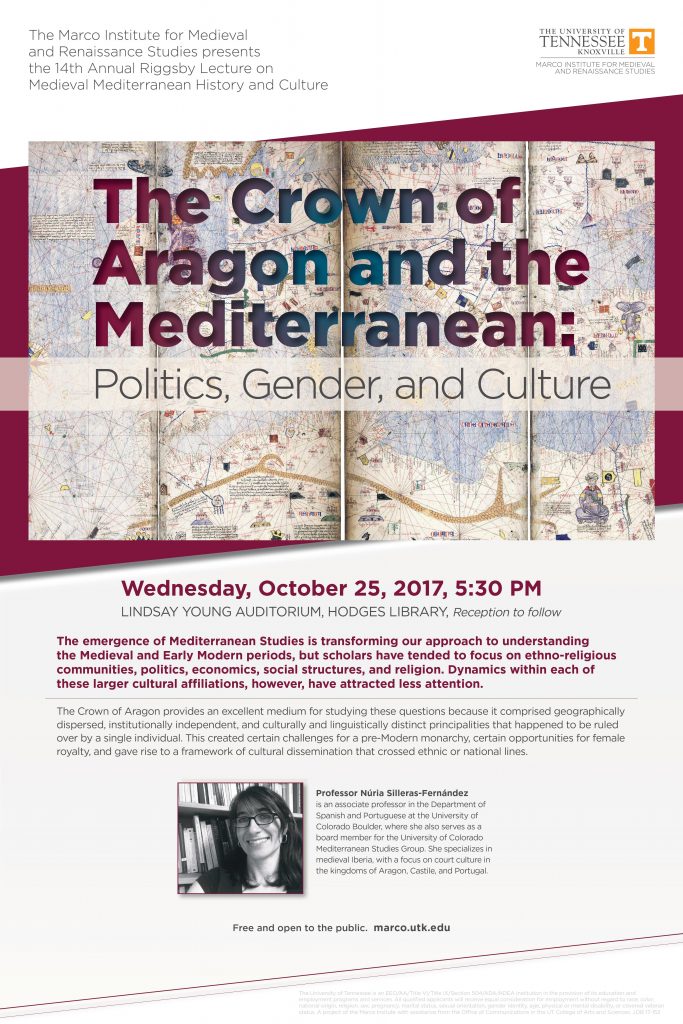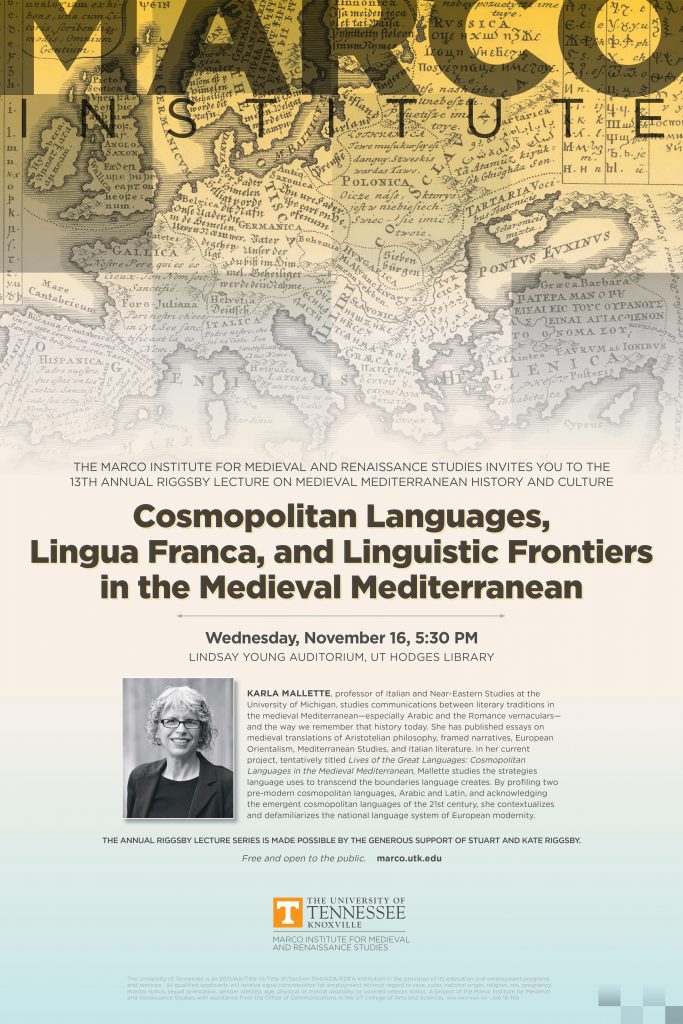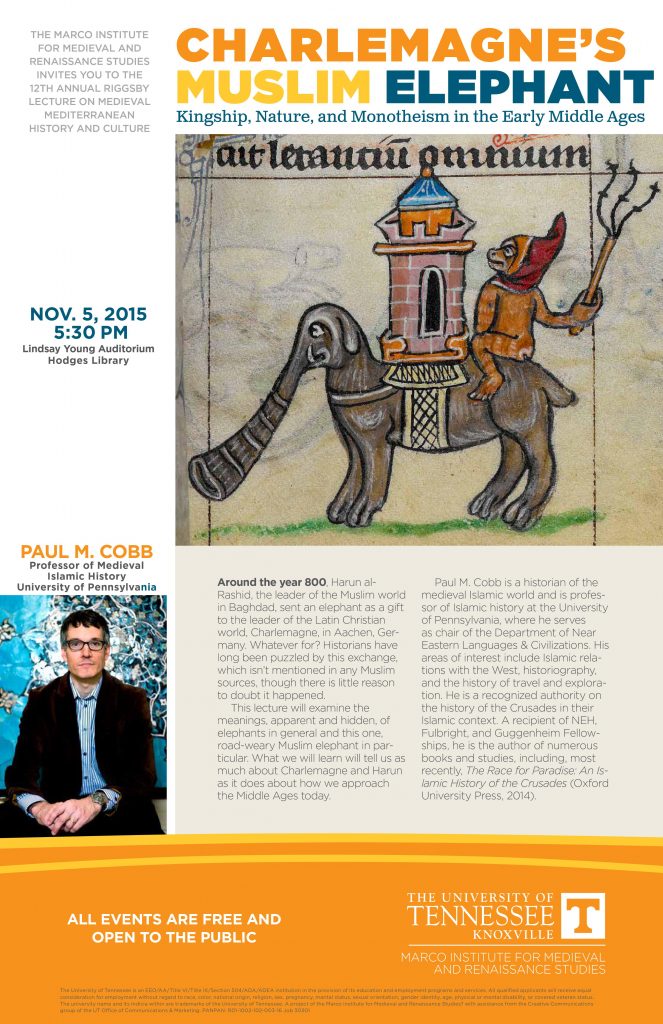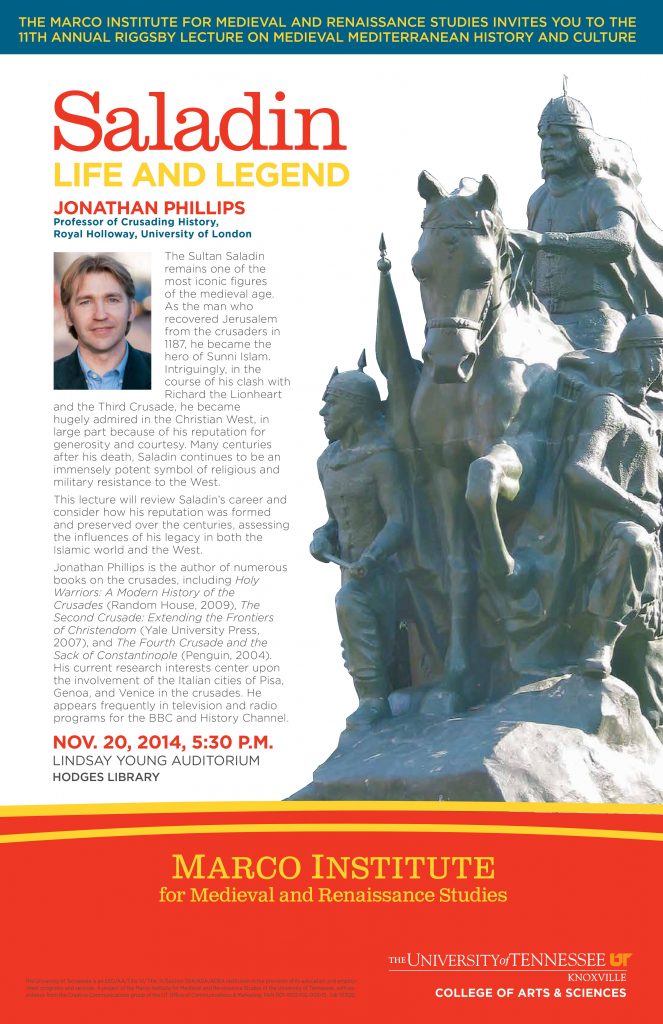2023 Riggsby Lecture: Suzanne Akbari Conklin (Institute for Advanced Study, Princeton), “Byzantine Purple, Purple Wampum: Mediterranean Studies on Turtle Island”
Professor Suzanne Conklin Akbari is professor of medieval studies in the School of Historical Studies at Princeton’s Institute for Advanced Study. Her research centers around the literature and history of Europe, the Mediterranean, and the interconnected medieval world. She is the co-PI on the Andrew W. Mellon Foundation grant, “The Book and the Silk Roads,” studying medieval transmission of book technologies along the silk road trade routes between China and Europe. She is committed to fostering relationships with Lenape (Delaware) communities, in recognition of the land she lives and works on – in Munsee Delaware language, “Lunaapahkiiing” – and is a member of Native American and Indigenous Studies Initiative at Princeton.
The study of the medieval past increasingly focuses on regional connectivities, entanglements, and border regions, where various cultural and social formations come into contact, especially as formulated in terms of Mediterranean Studies and Silk Road Studies. Such work also invites us to consider exactly how the global intersects with the local: while it is nothing new to comment that the local and the global are always in tension, it is worth considering the way that they are in tension, and what the methodological implications of this tension might be. In other words, how do we take account of the local? How does our own situatedness – understood not only in terms of individual subject position, our disciplines, and our institutions, but also in terms of the land we live on – affect the work we do? This lecture addresses the implications that arise when we carry out the study of the Global Middle Ages in a specific location – that is, when we recognize the situatedness of our work, being aware of the constant tension of the local and the global.
About the Riggsby Lecture:
Thanks to the generous support of donors Stuart and Kate Riggsby, the Marco Institute was able to establish the annual Riggsby Lecture in 2004. This lecture series brings a prestigious scholar of the medieval Mediterranean to the University of Tennessee campus every fall to give a public talk on a medieval Mediterranean topic of the speaker’s choosing. We are grateful to the Riggsbys to have been able to host the following distinguished academics in past years.
2021
Monica H. Green
“A Mediterranean Divide: Christian versus Islamic Experiences of the Black Death”
Watch Online: https://youtu.be/MbV9vCthlas
2021
Marina Rustow
“The India Trade, the Global Middle Ages, and the Cairo Geniza”
Samantha Kelly
“The Other Christians of the Late Medieval Mediterranean: Ethiopian Settlement and Exchange with Latin Europe, c. 1200 – c. 1550”
2019
Maureen Miller
“Medieval Italy’s Bishops: A Mediterranean Episcopate in its European Context, c. 1050-1300”
Hussein Fancy
Associate Professor of History, Univ. of Michigan
“The Impostor Sea: The Making of the Medieval Mediterranean”
2017
Associate Professor of Spanish and Portuguese, University of Colorado – Boulder
“The Crown of Aragon and the Mediterranean: Politics, Gender, and Culture”
2016
Professor of Italian and Near-Eastern Studies, University of Michigan
“Cosmopolitan Languages, Lingua Franca, and Linguistic Frontiers in the Medieval Mediterranean”
Paul M. Cobb
Professor of Medieval Islamic History, University of Pennsylvania
“Charlemagne’s Muslim Elephant: Kingship, Nature, and Monotheism in the Early Middle Ages”
Click Here to watch the simulcast on November 5 @ 5:30p
2014
Professor of History, Royal Holloway, University of London
“Saladin: Life and Legend”
2013
Catherine Brown
University of Michigan
“Traveling Hands: Mobile Manuscript in the Early Medieval Mediterranean”
2012
Amy Remensnyder
Brown University
“La Conquistadora: A Tale of Two Seas, the Virgin Mary, Muslims, Christians, Jews, and Indians”
2011
Paul H. Freedman
Chester D. Tripp Professor of History, Yale University
“A Phantom Spanish Archive: The Past Slips Through Our Fingers”
2010
Cynthia Robinson
Cornell University
“Who’s that Girl?: Cross-cultural Narrative, Mysticism and the Lady on the Alhambra Ceilings”
2009
Sharon Kinoshita
University of California, Santa Cruz
“How To Do Things in the Medieval Mediterranean”
2008
Michelle Hamilton
University of California, Irvine
“The Fall of ‘Spain’: The Problem of Muslims in Medieval Iberia”
2007
Joel Cohen
Director, Boston Camerata
“Music of the Three Religions in Medieval Spain”
2006
Timothy Barnes
University of Toronto
“What is the Theodosian Code?”
2005
David Nirenberg
Johns Hopkins University“King Alfonso VIII and the Jewess of Toledo: A Love Story”
2004
Olivia Remie Constable
University of Notre Dame
“A Game for Everybody: Chess and Society at the Court of Alfonso X of Castile”
